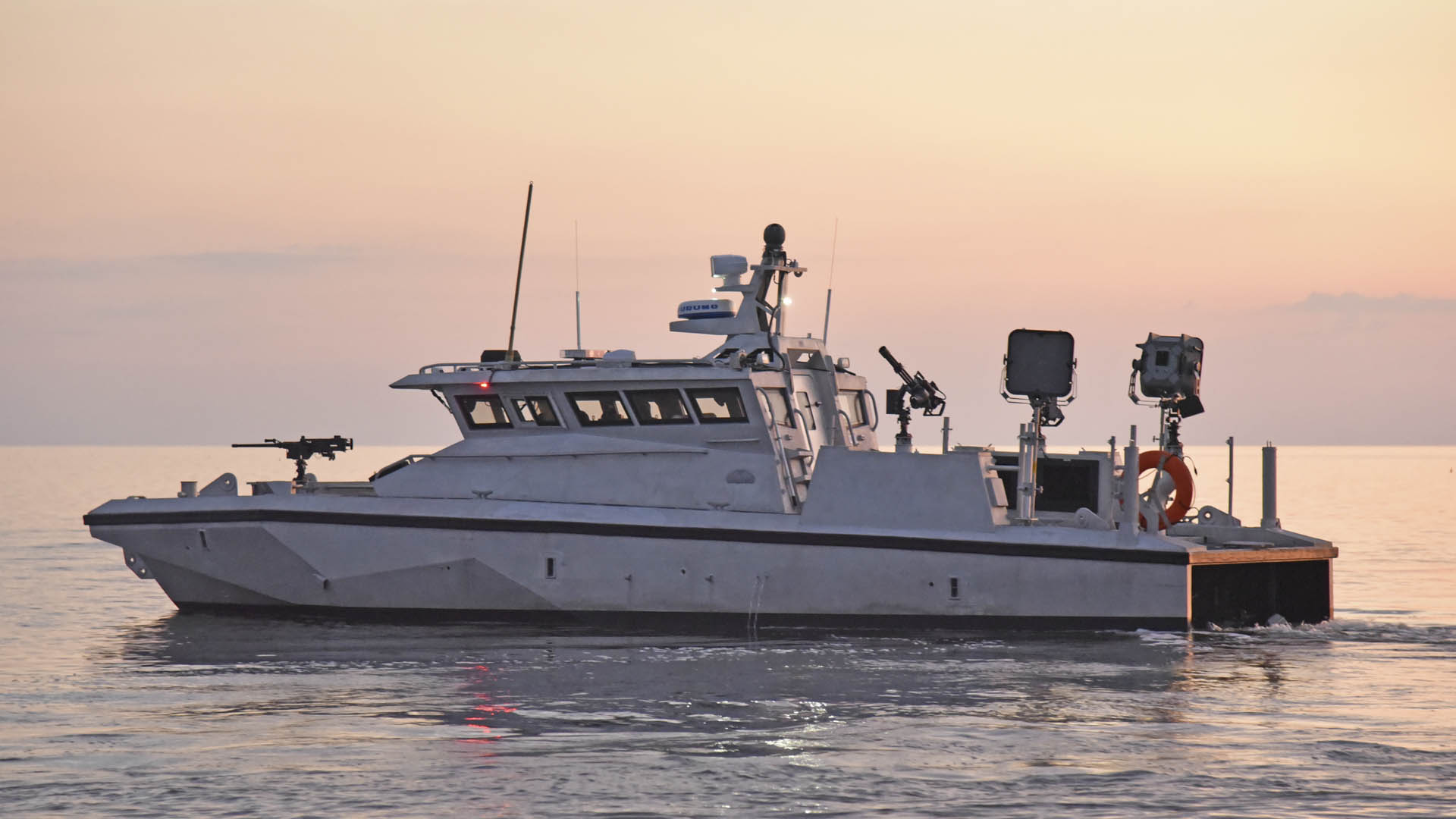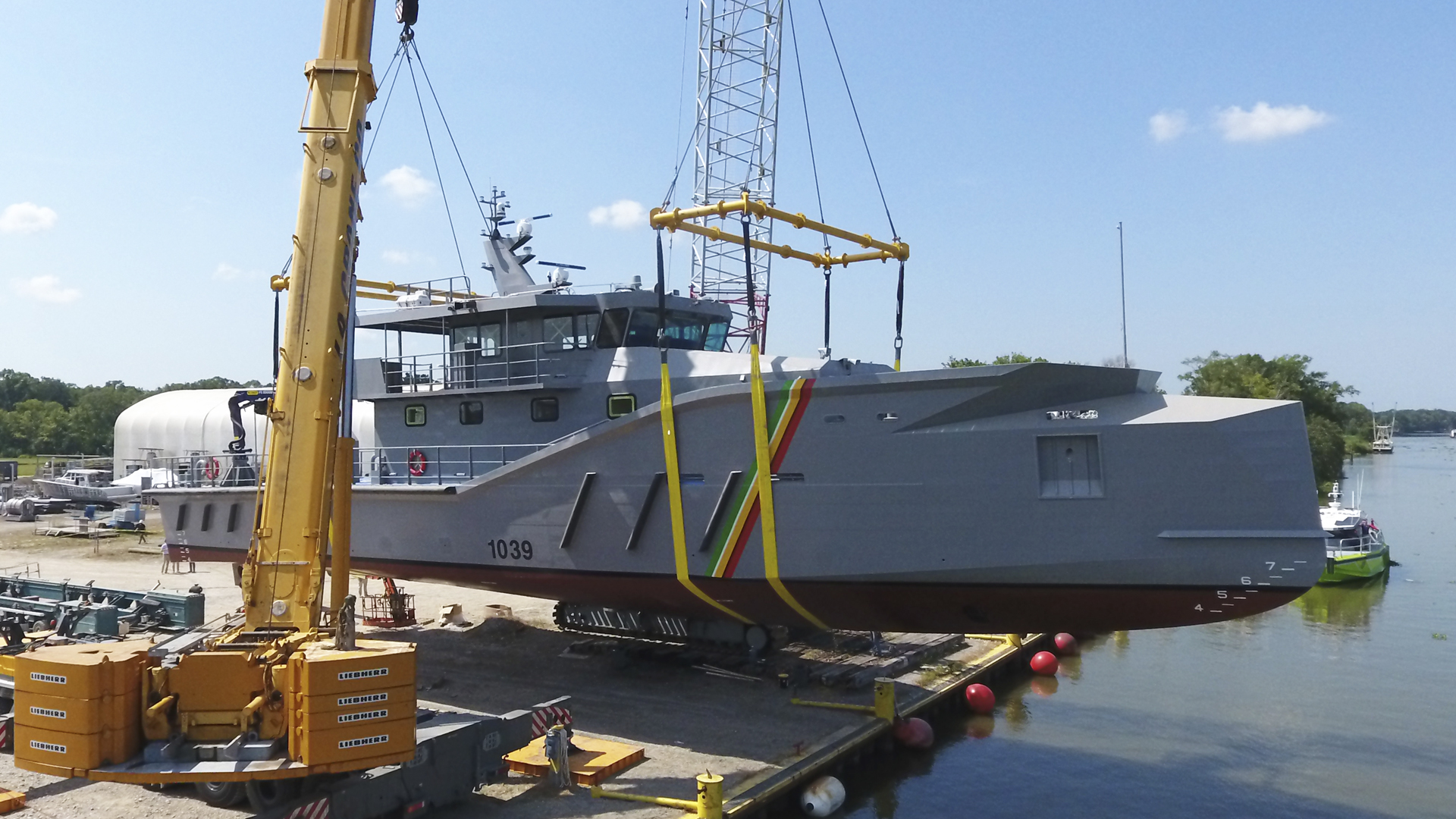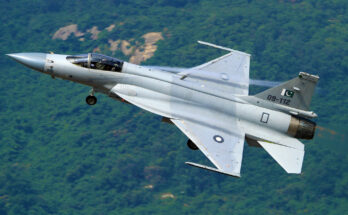
At a time when U.S. shipbuilding, both commercial and military, is facing sizeable delays and struggles in production, some U.S.-based dockyards are working to buck the trend of laggard growth. Louisiana-based shipbuilder Metal Shark Boats has successfully capitalized on the growing market for small boats and ships. 2024 marked a strong year for the company, notching some high-visibility contracts as it continues to make inroads in domestic and foreign markets.
Spun out of Gravois Aluminum Boats in 2005, Metal Shark was geared towards marketing smaller watercraft to both commercial and government clients. The Louisiana-based manufacturer has capitalized on the growing demand for smaller vessels, making a name for itself in the construction of boats between 16 and 300 ft. Within this niche, the company produces a variety of models to meet the needs of an equally diverse array of customers.
Success at Home, Interest Abroad
A significant milestone to tout this year, Metal Shark announced on May 29 that the company had won a $290 million Flight 2 contract to provide 73 40-ft patrol boats to the U.S. Navy. The contract built on an original 2017 award for approximately 50 of the next-generation patrol boats valued at $90 million. Initially designated the PB(X), the 40PB, based on Metal Shark’s Defiant design, is a monohull patrol boat planned to replace up to 160 older vessels in service with the Navy’s Expeditionary Combat Command. Metal Shark won the original award out of a field of seven potential designers. As of May 2022, 20 of the boats had already been delivered. This year’s follow-up production contract demonstrates the Navy’s growing confidence in the design, and trust in the young shipbuilder’s ability.
The company’s footprint hasn’t been limited to U.S. clients, however, as Metal Sharks’ designs have seen growing interest from foreign customers as well, particularly in the Caribbean. On May 2, Metal Shark announced a contract to provide 22 high-speed interceptors to the Jamaica Defense Force. In April, nearby Guyana inaugurated its recently delivered 115-ft Metal Shark offshore patrol vessel, BERBICE, which had been contracted in 2022. The ship joined eight other small craft designed by the company for the Guyana Defense Force.

In the international arena, Metal Shark has also capitalized on U.S. Foreign Military Sales (FMS), partnering with the more established Dutch firm Damen Shipyard in 2017, to provide 13 85-ft Defiant patrol boats, derived from Damen’s Stan 2606 patrol vessel to U.S. partner nations. The $54 million 2017 contract included deliveries to the Dominican Republic, El Salvador, Honduras, Costa Rica, and Guatemala, among others. The successful delivery of these patrol boats over the following years provided the company with entry to numerous small markets across the region, cultivated a reputation for efficient delivery and built up a valuable strategic cooperation agreement with a major international shipbuilder, all of which are now paying dividends for the firm.
The Recipe For Growth
Metal Shark’s success in the recent past can be attributed to several factors. The company effectively identified the growing market need for small craft across a swathe of different industries and services. As navies trend towards smaller vessels over the cumbersome battleships of old, manufacturers of lighter, quicker ships are seeing more work. Business Research Insights estimated that global sales of patrol boats would rise from 0.26 billion in 2023 to $0.5 billion in 2032, demonstrating the growing interest in smaller, more agile craft.
Despite the growing demand for small boats, buyers have lacked variety in proven options. In response, Metal Shark has worked to develop a huge variety of available models tailored to specific needs, and today bills over 50 flexible designs for patrol, interdiction, firefighting and more. In April, the company even made its foray into autonomous unmanned surface vehicles (USVs), launching the Prowler autonomous semi-submersible surface vessel and the Frenzy amphibious micro-USV. With the rising demand for uncrewed technologies among military and civilian clients globally, the company is making a strong strategic move in marketing autonomous vessels to small boat clients. If successful, these USVs could further expand the company’s sales footprint and product range. The sustained commitment to expanding the company’s range of products within its prescribed area of expertise is a key reason for Metal Shark’s growing impact on the small boat market.
Metal Shark has seen extensive foreign sales in the Caribbean, as evidenced by both Guyana and Jamaica’s procurement of the company’s vessels. The region generally has little interest in larger, blue water ships, making it an excellent market for the small patrol, interdiction and emergency response vessels built by Metal Shark. With regional security needs primarily limited to coastal defense, anti-smuggling and resource protection, Metal Sharks’ versatile, high-speed craft provide excellent solutions to local governments. While some smaller nations may struggle to afford the latest ships, participation in U.S. FMS donations has allowed the company to penetrate these new markets without fears of delayed or non-payments. Partnering with Damen has similarly extended Metal Shark’s credibility and likely also contributed to its selection for the 13-nation FMS donation plan in 2017.
The company has also bet on itself by investing in the expansion of its shipbuilding facilities to help produce larger vessels and accommodate a greater volume of orders. On Feb. 9, Metal Shark announced it would be opening a third facility in Iberia Parish, Louisiana. The 40,000 sq ft facility expanded the company’s manufacturing space by around 20 percent and was followed by recruitment campaigns to bring in new workers. The purchase came after the sale of the company’s sole Alabama facility, which conducted repair and refit work as well as steel boat construction, to Birdon America. The deal was made to free up capital and allow Metal Shark to focus on refining its edge in its core faculty, aluminum boat building. The decision echoed Metal Shark’s 2014 acquisition of what became its Franklin production facility. The Franklin facility allowed the company to construct larger ships of up to 180 ft and improved logistical and productive capacities. A willingness to invest in new production infrastructure has not only demonstrated confidence but allowed the business to capture new opportunities and contracts.
* * *
Metal Shark’s strong performance in 2024 underscores its ability to leverage market trends and fulfill both domestic and international needs. Through its investments in autonomous technology, expanded manufacturing capabilities, and diverse fleet offerings, the company has captured significant new opportunities. As it builds on this momentum, Metal Shark is well-positioned to continue its growth and leadership in the small craft market in 2025 and beyond.
Tom Freebairn is a weapons analyst with Military Periscope covering naval affairs and maritime systems. He pursued an undergraduate degree in International Relations and Modern History, followed by a master's in Middle East, Caucasus, and Central Asia Security Studies from the University of St. Andrews. His master's thesis focused on the relationship between oil and separatist politics in Northern Iraq. Tom's interests include the politics of energy, ethnic separatism, the evolution of naval warfare, and classical history.




